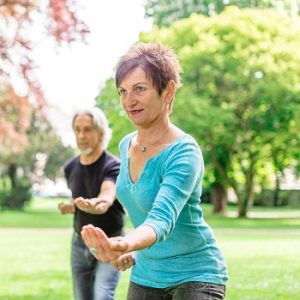
More evidence that low-calorie sweeteners are bad for your health
Studies show that artificial sweeteners can raise the risk of hypertension, metabolic syndrome, type 2 diabetes and heart disease, including stroke.

Natural Health News — The traditional form of Chinese exercise known as Tai Chi could help reduce pain and improve quality of life for older adults suffering from chronic health problems.
Tai Chi consists of slow, gentle, flowing movements that aim to boost muscle power, balance, and posture. It also includes mindfulness, relaxation, and breath control.
The researchers wanted to find out how effective Tai Chi was in long term conditions that are common among older adults and so searched all the published research to find studies on potential health benefits of Tai Chi for people with cancer, osteoarthritis, heart failure, and COPD. Their findings are published in the British Journal of Sports Medicine.
» Researchers pooled together results from several high quality studies into the Tai Chi health benefits.
» They looked specifically at people with the chronic conditions cancer, osteoarthritis, heart failure, and COPD.
» Results showed that Tai Chi training 2-3 times per week improved seniors ability to walk, stand stretch and breathe and benefited quality of life, even in those suffering chronic ill health.
Among the more than 1500 participants in the studies analysed the average age of participants ranged from the mid 50s to the early 70s, while the average length of the Tai Chi training programme was 12 weeks, with most sessions lasting an hour. Tai Chi training was usually offered two to three times weekly.
The results showed that even in a short amount of time Tai Chi was associated with trends towards, or definite improvement, in physical capacity and muscle strength in most or all four long term conditions.
This included improvements in the six minute walking test; muscle strength, as measured by bending and stretching the knees; the time it takes to get up and move known as the TUG test; and quality of life.
In particular Tai Chi was also associated with an improvement in the symptoms of pain and stiffness in osteoarthritis and in breathlessness in COPD. And it was associated with improved sit to stand times among patients with osteoarthritis.
The findings are in line those of previous research, and provide a reasonable starting point to look at the value of exercise programmes, such as Tai Chi, for people with several co-existing long term conditions, say the researchers.
In addition, people suffering from mild-to-moderate Parkinson’s disease experience significant benefits, including better posture, fewer falls, and improved walking ability, when they practice Tai Chi.
In a study of older adults, researchers found that in older adults suffering from loneliness or stress the moderate physical activity, deep breathing and meditation seemed to calm the stress response pathways and reduce inflammation.
“Tai Chi can improve some physical performance outcomes in four chronic conditions…but not at the expense of worsening pain or dyspnoea [breathlessness],” they write, adding that it may provide a suitable exercise stimulus for people suffering a variety of symptoms at once and could be used as a complementary therapy in some long term conditions.

Please subscribe me to your newsletter mailing list. I have read the
privacy statement